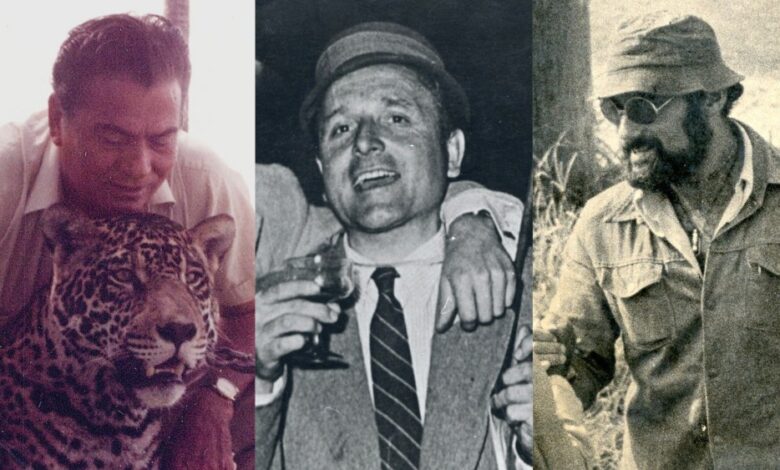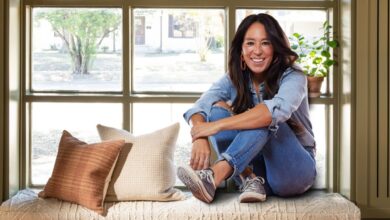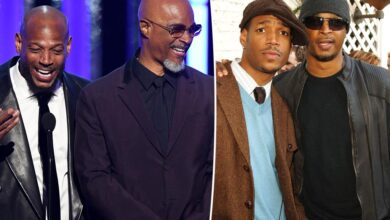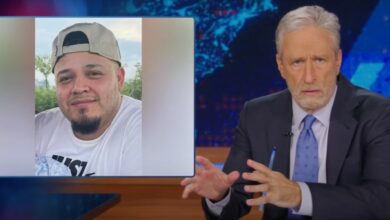New German Series Explore Nazi Drug Cartel, Parallel Lives, Teen Angst

Upcoming German series previewed at the EFM’s Berlinale Series Market on Tuesday offered a range of genres and challenging subject matter, from Nazi drug runners and quirky fantasy to teen angst and alter egos.
The Berlinale Series Market’s Up Next: Germany showcase presented four new series projects that look certain to entice international audiences.
“The Nazi Cartel,” from Kundschafter Filmproduktion and mobyDOK, tells the story of how notorious Nazi war criminal Klaus Barbie and drug lord Roberto Suarez overthrew the Bolivian government in 1980, paving the way for figures like Pablo Escobar and marking the beginning of the drug cartel industry.
“Parallel Me,” from Gaumont in association with Paramount Television International (PTIS), follows Toni, a young woman who, at the lowest point in her life, is given the incredible opportunity to travel to alternative versions of her life.
“All In,” from Odeon Fiction, centers on Ayla, a devout Muslim and talented astrophysics student, who faces financial struggles due to her debts. To raise the money, she turns to poker, risking her deep religious beliefs and her entire life in the process as she creates an alter ego for herself, a woman who embodies her secret longings and desires — and gambles for big money at high risk.
“Euphorie,” from Zeitsprung Pictures, follows 16-year-old Mila, who has spent three months in a mental health facility following a traumatic incident. Now back in society, Mila spirals further as she finds herself in a love triangle with Jannis, a troubled classmate, while still searching for Ali, the girl she fell for in the clinic.
Presenting “Nazi Cartel,” producer Alexander Lahl of mobyDOK said the idea for the series arose from discussions with investigative journalist Christian Bergmann, who had researched the activities of Nazi war criminals who had fled to South America after World War II and in the post-war years who had not only gained “clandestine power” by collaborating with right-wing military leaders but also with drug traffickers. “In particular, he told us about Klaus Barbie, who is very well known in France — not so much in Germany actually – because he was the head of the Gestapo in Lyon, a very notorious Nazi, very famous for his brutality, and his collaboration with Roberto Suárez, the drug king of Bolivia at this time.”
“It’s also about the beginning of the drug war, of the narcotráfico,” added director Justin Webster.
The series, which uses archive material and reenactments, focuses on Barbie, who has adopted the name Klaus Altmann; Suarez, a Bolivian businessman who at the time controls 90% of the world’s cocaine trade; and Michael Levine, a U.S. DEA agent and his efforts to bring them to justice.
“The Nazi Cartel” is produced by Kundschafter Filmproduktion and mobyDOK for Sky Deutschland, Sky Studios and ZDF, with NBCUniversal handling world sales.

“Parallel Me”
Gaumont/Paramount+
Discussing the fantasy series “Parallel Me,” Jana Burbach, showrunner, head author and executive producer, explained that the character of Toni experiences 12 alternative lives. “Every life is a complete reality, with its own back story. So on the one hand, it was for script development, for the actors, for everybody, it was a huge challenge … to deal with the fact that it is 12 lives instead of just one, because we took each life absolutely equally seriously – all the backstories for every character.”
Actor Malaya Stern Takeda, who plays Toni, said it was a privilege to play so many different versions of the same character. “It’s fun because you get to do character work and get really specific with these different characters. And because we do have the opportunity to show so many different sides that you do want to go into more extreme things, because you also want to show and really give space to that difference. … Of course it was confusing and overwhelming, but she’s constantly confused and overwhelmed as well, so I could just use that to my advantage — she’s so in awe, I was in awe.”
The volume of locations was also immense, she added. While there were some recurring sets and characters, most of Toni’s alternative lives had different sets. “So we had a colossal amount of stuff to find and manage. That was a big challenge.”
Indeed, in addition to Berlin, the series also shot in Poland and Thailand.
“Parallel Me” is produced by Gaumont in association with PTIS for Paramount+, with Paramount Global Content Distribution distributing.

“All In”
Jürgen Olczyk/ZDF/Odeon Fiction
Presenting “All In,” producer Kathrin Tabler of Odeon Film said one element that made the show unique was the fact that its “the first German series with a hijabi in the lead, which is quite remarkable.”
Tabler added that the series tells “this individual story of a not-seen-before character” but also grapples with the question, “how far would you go to chase after your dreams?”
Describing the show as “Breaking Bad” meets “The Queen’s Gambit,” director Marijana Verhoef said the character of Ayla was also like “a projection screen for all of us.”
At the same time, depicting a hijabi, a Muslim woman who wears a head covering, or a hijab, also posed challenges, even for screenwriter Marianna Ölmez, herself a Muslim, Verhoef added.
Ayla, “as a character, challenges us. And the beautiful thing about Ayla and her journey, is that she’s not fulfilling our expectations. She’s really doing her own thing. And that’s her hubris, she wants to become more. That’s something we can relate to.”

“Euphorie”
RTL/Zeitsprung/Nirén Mahajan
In creating “Euphorie,” a German adaptation of the Israeli series “Euphoria,” which also inspired a hugely popular U.S. version from HBO starring Zendaya, Jacob Elordi and Sydney Sweeney, likewise proved challenging to its creators.
Executive producer Lennart Pohlig of Zeitsprung Pictures, said it was important to find the distinct teenage experiences unique to German young people in order to set the series apart from the very different Israeli version, including setting the show in the densely populated Ruhr region of North-Rhine-Westphalia. “It has a very German history but at the same time it’s the most important cultural melting pot in Germany.”
Creator and screenwriter Jonas Lindt added, “We are based on this Israeli series but most people know the American one, so we had to deal with that expectation — we had to do our own thing.”
That included exploring the different drug habits of German kids compared to their American and Israeli counterparts, he added.
The series follows high school students navigating friendship and love at the same time as struggling with drugs, sex, trauma and social media. Writer-director Antonia Leyla Schmidt noted the show’s “very large ensemble — we cast over 100 roles. Obviously with themes like drugs and scandal and sex we shot like I think I can’t even count how many intimacy scenes I’ve shot in this series with every person of the ensemble.”




